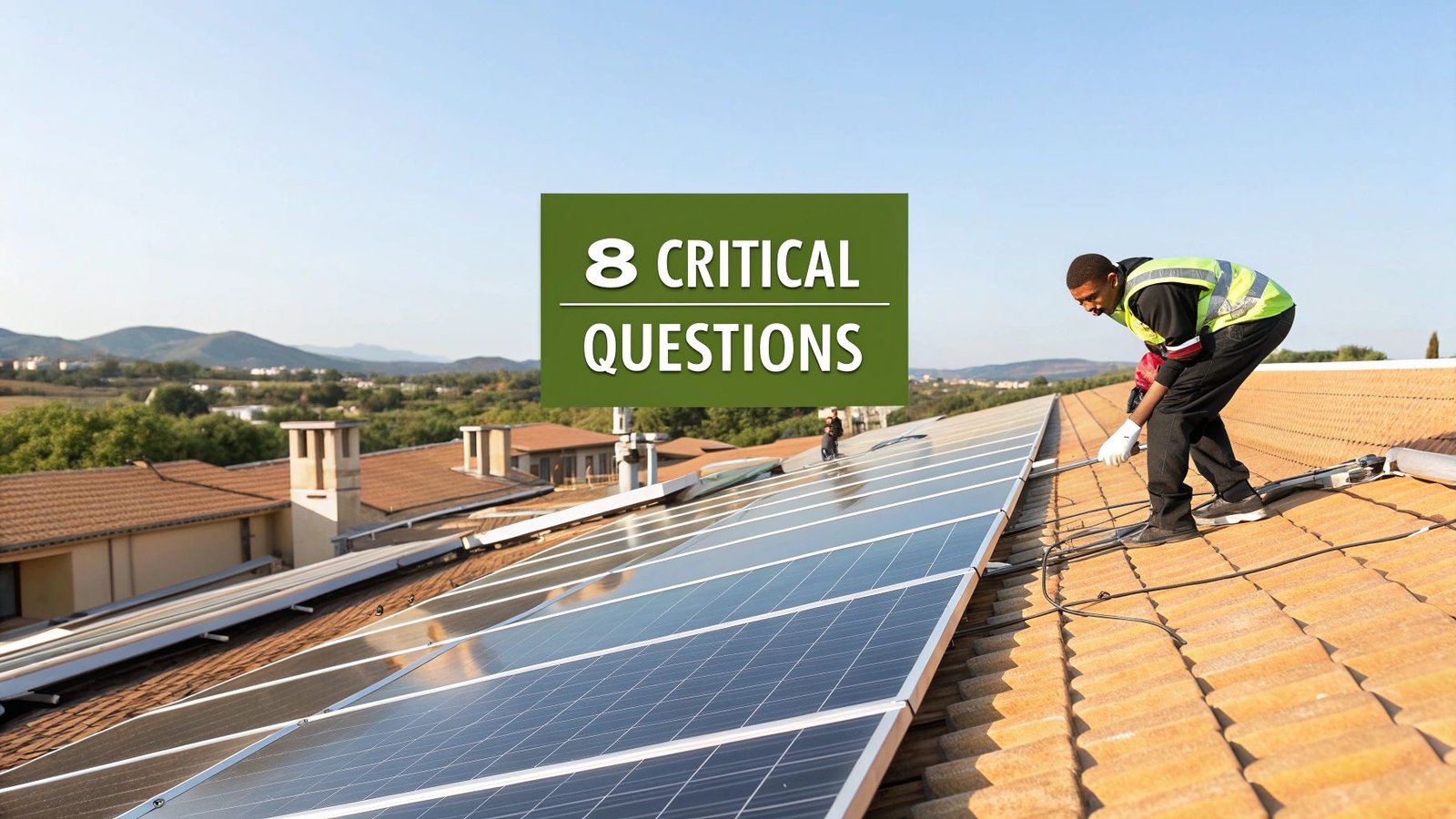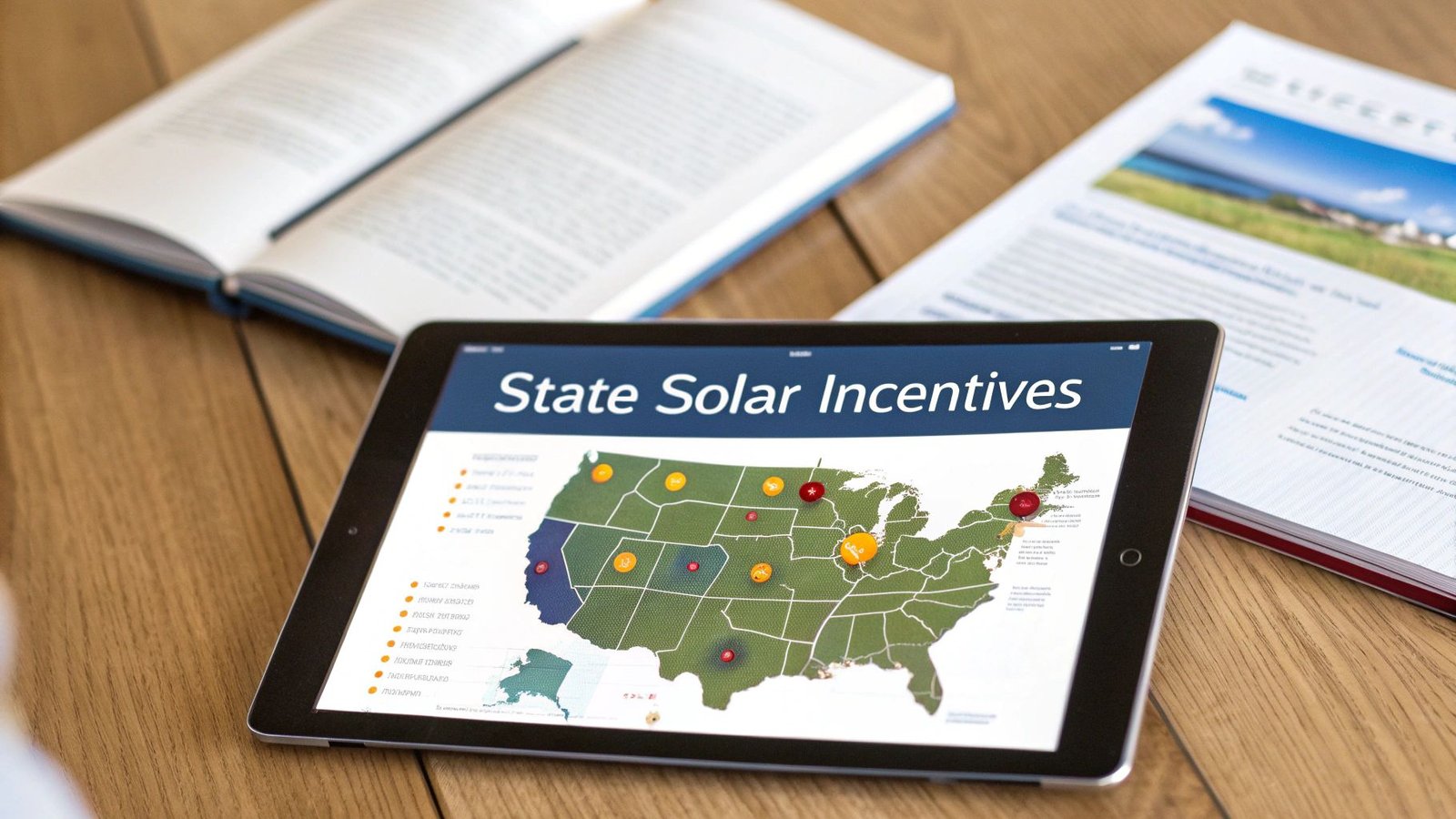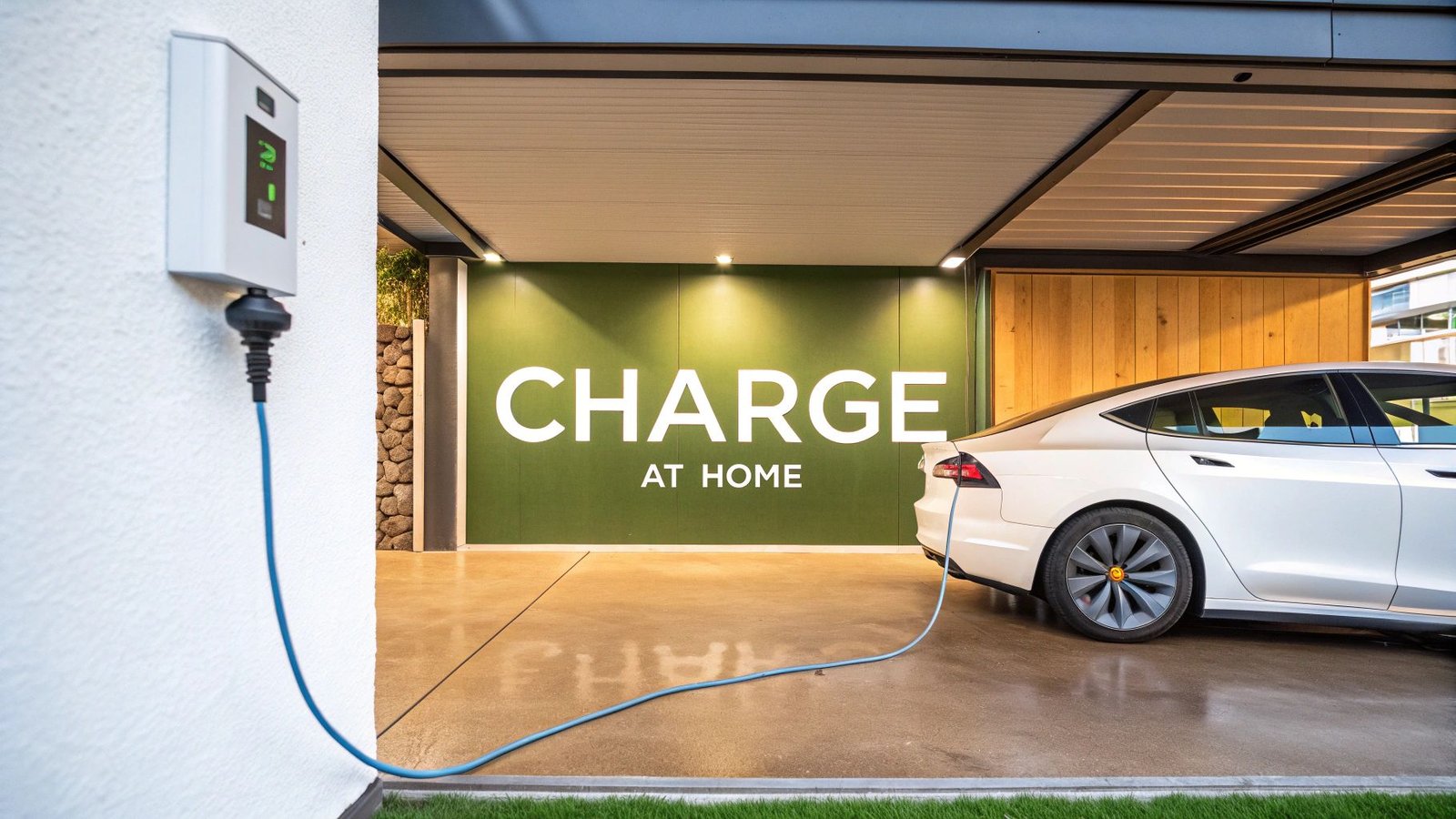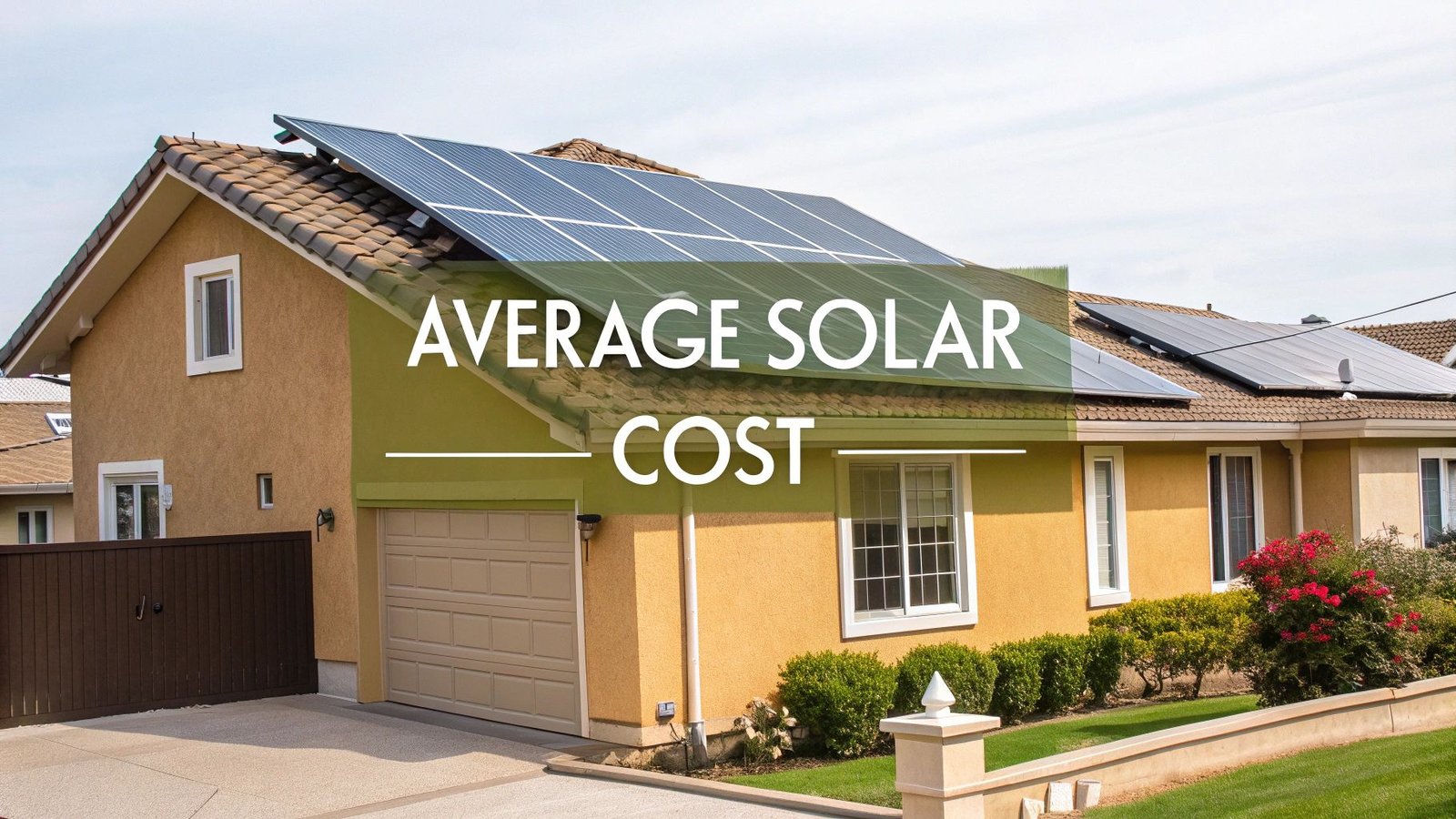Switching to solar power is a significant investment in your home's financial and environmental future. But navigating the sea of providers can feel overwhelming. How do you ensure you're choosing a partner who will deliver on their promises and maximize your return on investment? The key lies in being prepared. The quality of your entire solar experience, from the initial consultation to decades of energy production, hinges on asking the right questions before you commit. A well-informed homeowner is an empowered one.
This comprehensive guide is designed to arm you with the critical knowledge needed to vet potential installers thoroughly. We have compiled the essential questions to ask solar companies to help you cut through the sales pitches and get to the facts. By understanding the nuances of system design, financing, warranties, and long-term support, you can confidently select a trusted expert, like Radiant Energy, to handle your project. We'll break down complex topics into clear, actionable inquiries, complete with charts and graphs to visualize important data. This list will illuminate the path to a seamless and profitable transition to clean energy, ensuring your solar journey starts on the strongest possible foundation. Let's begin.
1. System Size and Design Questions
One of the most crucial sets of questions to ask solar companies revolves around the proposed system's size and design. This isn't just about covering your roof in panels; it's about engineering a custom power plant for your home. The system's size, measured in kilowatts (kW), directly determines its energy output and your potential savings. A properly sized system ensures you generate enough power to meet your needs without overpaying for unnecessary capacity.
The design process involves a detailed analysis of your roof's orientation, pitch, and any potential shading from trees or nearby structures. Companies use this data, along with your historical energy consumption, to create a system optimized for maximum production. For instance, a 4-person household in a sunny state like California typically requires a 6-8 kW system to offset its electricity usage effectively.
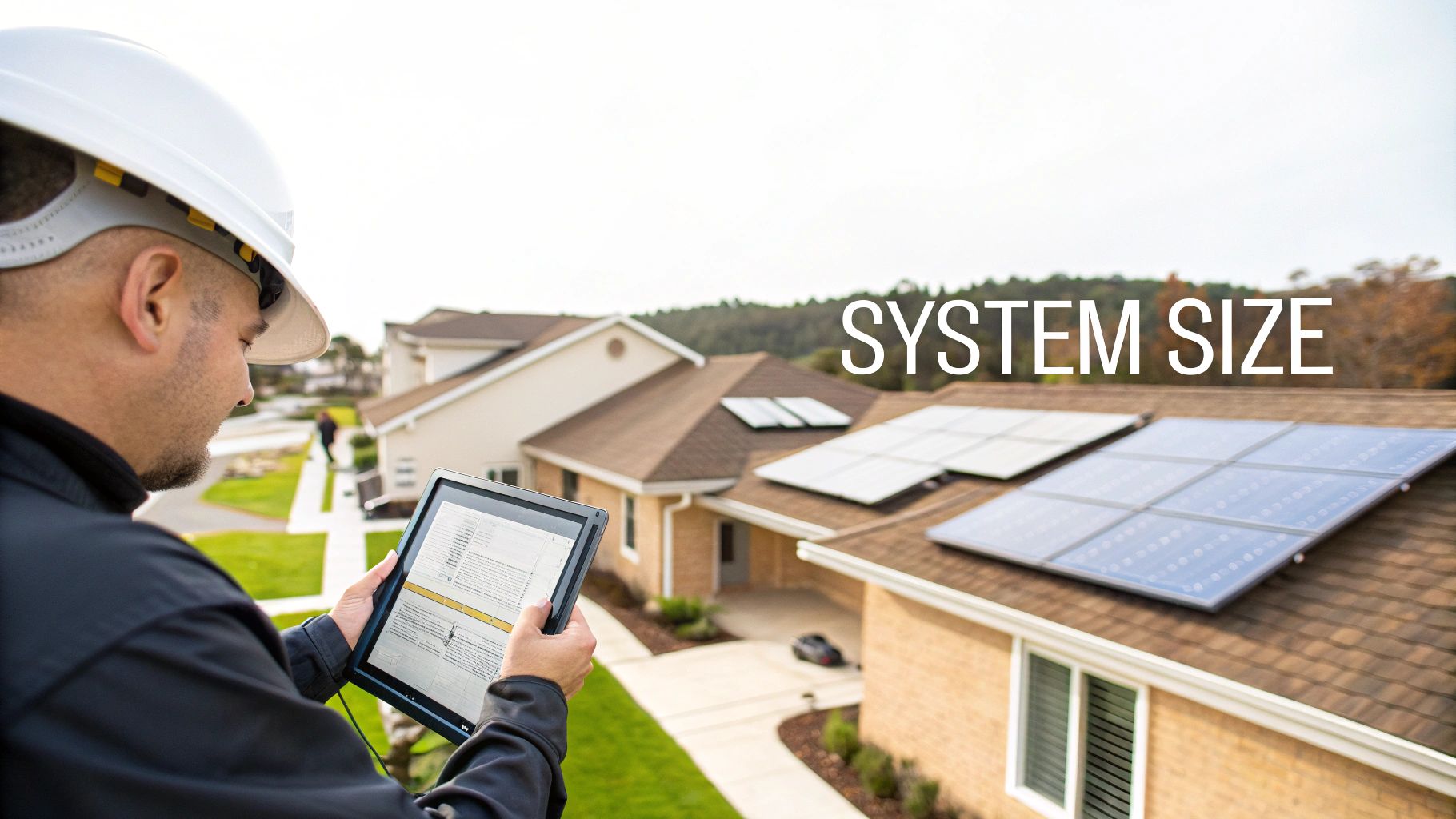
Key Questions for Your Solar Consultant
When discussing the proposal, be prepared with specific inquiries. Getting clear, data-backed answers is essential for making an informed decision.
- How was my system size determined? Request a detailed breakdown of your past energy usage (a "load analysis") and how it translates to the proposed kW size.
- What is the estimated annual production? Ask for a 25-year production forecast. This should account for panel degradation over time, giving you a realistic picture of long-term performance.
- Can you show me the shading analysis? Modern solar design software, like that used by Sunrun or created with tools like Aurora Solar, generates a 3D model of your home and accounts for seasonal sun path changes. Verify this has been done.
- Is the system designed for future expansion? If you plan to buy an electric vehicle or add a hot tub, you'll need more power. Ask if the inverter and layout can accommodate adding more panels later.
- Can I see multiple design options? Sometimes, a different panel layout can improve aesthetics or efficiency. Comparing options helps you find the right balance for your home.
2. Cost, Financing, Incentives, and Net Metering
Understanding the complete financial picture is one of the most important parts of going solar. The initial price tag includes more than just panels; it covers equipment, installation labor, permitting fees, and design costs. Your net cost, however, is significantly influenced by financing options, available incentives, and local net metering policies, which dictate how your utility compensates you for excess energy. Getting clarity on these elements is key to calculating your true return on investment and payback period.
The total cost of solar has dropped dramatically, from over $6 per watt in 2010 to an average of $2.50 to $3.50 per watt today. This price, combined with powerful incentives like the 30% federal Investment Tax Credit (ITC), makes solar more accessible than ever. However, the landscape is complex, with state rebates, local policies like California's NEM 3.0, and various financing models like leases or loans creating different financial outcomes for every homeowner.

Key Questions for Your Solar Consultant
When you receive a quote, it's time to dig into the numbers. A transparent company should be able to answer these questions clearly and provide supporting documentation.
- Can I see a fully itemized quote? Ask for a detailed breakdown of all costs, including panels, inverters, labor, permitting, and any other "soft costs." This helps you compare apples to apples.
- What is the final price per watt ($/W)? This metric is the industry standard for comparing quotes. It helps you understand the value you're getting, independent of system size.
- Which federal, state, and local incentives do I qualify for? The company should provide a comprehensive list and explain how each one impacts your final cost. You can also explore solar incentives by state to verify the information.
- What are the terms of the financing? If you are considering a loan, ask about the interest rate, term length, and any prepayment penalties. For a lease or PPA, clarify the annual escalator rate.
- How does my local net metering policy work? Your utility's policy determines the credit you receive for surplus energy sent to the grid. Understanding this is crucial for calculating long-term savings.
Example Solar Project Cost Breakdown
Illustrative breakdown of a typical 7 kW system. Your costs will vary.
| Cost Component | Amount | % of Total |
|---|---|---|
| Hardware (Panels, Inverter, etc.) | $10,500 | 50% |
| Installation Labor | $4,200 | 20% |
| Permits & Inspection Fees | $1,050 | 5% |
| Soft Costs (Sales, Admin, Margin) | $5,250 | 25% |
| Gross System Cost | $21,000 | 100% |
| Less: 30% Federal ITC | ($6,300) | |
| Net System Cost | $14,700 |
3. Contracts and Warranties
Navigating the paperwork is a critical, often overlooked, step in the solar journey. Solar contracts and warranties are the legal backbone of your investment, defining ownership, performance guarantees, and what happens if something goes wrong. A strong contract protects you, while robust warranties ensure the long-term viability and performance of your system. This paperwork is your assurance that the company stands behind its products and workmanship for decades to come.
These documents detail everything from equipment guarantees to the installer's responsibilities. For example, top-tier manufacturers like SunPower and Panasonic offer 25-year warranties covering panel performance, power output, and defects. Similarly, your installer’s workmanship warranty covers issues related to the physical installation, like roof penetrations and wiring, which is a key part of your home’s protection.

Key Questions for Your Solar Consultant
Before signing anything, you must thoroughly vet the contracts and warranties. Getting these details right is one of the most important questions to ask solar companies, as it safeguards your investment for its entire lifespan.
- Can I review all warranty documents upfront? Request the full, unredacted warranty documents for all major components: panels, inverters, and any battery storage systems. A reputable company will provide these without hesitation.
- What is the workmanship warranty period? Most installers offer a 10-year workmanship warranty. Ask for this in writing and clarify exactly what it covers, such as roof leaks or faulty wiring. For more context, understanding contractor warranties in general can provide a solid foundation.
- What is the guaranteed power output at year 25? A quality panel's performance warranty should guarantee at least 80-85% of its original output by year 25. This detail is crucial for your long-term financial projections.
- Are the warranties transferable? If you sell your home, a transferable warranty is a major selling point. Confirm that the equipment and workmanship warranties can be passed to the new owner.
- Who handles a warranty claim? Clarify the process. Do you call the installer or the manufacturer directly? A company that manages the entire process on your behalf offers significant peace of mind. To learn more about what makes a high-quality panel, you can explore how to choose solar panels.
4. Performance Monitoring and Expectations
Once your solar system is installed, how do you know it's actually working as promised? This is where performance monitoring comes in. A high-quality solar installation includes a monitoring system that tracks your real-time energy production, consumption, and overall system health. It transforms your solar array from a passive installation into an interactive part of your home's energy management, accessible through web-based dashboards and mobile apps.
Understanding how to monitor your system and what to expect from its performance is vital. This technology allows you to verify that your investment is delivering the promised returns and helps you identify potential maintenance issues early. For example, a homeowner in Texas with an Enphase system can use the Enlighten app to see the output of each individual panel, quickly spotting if a single panel is underperforming due to debris or a technical fault.
Key Questions for Your Solar Consultant
Discussing monitoring is a key part of the final questions to ask solar companies before you commit. Ensuring you have robust, user-friendly tools is crucial for long-term satisfaction.
- Can you provide a demo of the monitoring platform? Ask to see the app or web portal you’ll be using. A good platform, like those from SolarEdge or Enphase, should be intuitive and provide clear data.
- What specific metrics can I track? You should be able to see real-time production, daily, monthly, and yearly historical data, and often your home's consumption. Learn more about the capabilities of a modern solar monitoring system.
- How will I be notified if there’s a problem? Clarify if the system sends automated alerts for performance dips or system faults and whether the installation company also monitors it proactively.
- What are the expected seasonal variations in production? Your production will be higher in summer than in winter. Ask for a chart showing the expected month-by-month energy output so you know what’s normal.
- What is the system's expected availability or "uptime"? A reliable system should have an uptime of 95-98%. Ask what happens if it falls below this guaranteed threshold.
Example: Estimated Monthly Solar Production (7 kW System)
Shows how solar energy generation changes throughout the year due to sun angle and daylight hours.
Jan
Feb
Mar
Apr
May
Jun
Jul
Aug
Sep
Oct
Nov
Dec
5. Installation Timeline and Project Management
Understanding the full timeline from signing the contract to flipping the switch on your system is another critical set of questions to ask solar companies. The solar installation process is more than just a few days of work on your roof; it involves multiple stages, including engineering, permitting, equipment procurement, installation, and final inspections. A clear and realistic timeline managed by a professional project manager ensures a smooth process and minimizes disruptions to your life.
The total duration can vary significantly based on your location, utility company, and the installer's efficiency. For example, some national installers might quote an 8-12 week timeline from consultation to activation, while others may offer expedited services in certain areas. Knowing these details upfront helps you set proper expectations and plan accordingly for each phase of the project, from the initial site survey to the final permission to operate (PTO).
Key Questions for Your Solar Consultant
When you review the installation plan, it's essential to get specific details about how the project will be managed from start to finish. This clarity prevents misunderstandings and potential delays down the road.
- Can you provide a detailed project timeline with milestones? Ask for a breakdown of each stage: design finalization, permit submission, equipment ordering, installation days, and inspection scheduling.
- Who is my main point of contact throughout the project? A dedicated project manager is a sign of a well-organized company. Clarify how often you will receive progress updates.
- How do you handle permitting and utility interconnection? Confirm that the company manages all necessary paperwork with your local jurisdiction and utility. Ask for the estimated approval time, as this is often the longest part of the process.
- What are the contingency plans for delays? Inquire about how the company addresses potential setbacks, such as weather events, equipment backorders, or inspection issues.
- What should I expect on the day of installation? Ask about the crew size, work hours, and any preparations you need to make at your home. A professional team will ensure a clean and efficient installation with minimal disruption.
6. Permits, Inspections, and Regulatory Compliance
Navigating the web of local permits, utility inspections, and building codes is one of the most complex parts of a solar installation. This isn't just paperwork; it’s about ensuring your system is safe, legal, and compliant with all regulations. A reputable solar company will manage this entire process, from submitting initial plans to your local building department to coordinating the final inspection with your utility company.
This regulatory process prevents delays, ensures your system meets critical safety standards like electrical and fire codes, and guarantees it can be legally connected to the grid. For instance, many Florida municipalities have strict wind-load requirements due to hurricanes, while some California cities use expedited digital permitting systems like SolarAPP+ to streamline approvals. A failure to comply can lead to fines, system removal orders, or an inability to activate your system.
Key Questions for Your Solar Consultant
Understanding how a company handles this bureaucratic process is a key indicator of their experience and professionalism. Clear answers here will save you significant headaches down the road.
- Who is responsible for managing all permits and inspections? Confirm that the company handles 100% of the coordination with your city/county and utility, and that this service is included in the contract.
- Can you provide a timeline and cost breakdown for all permits? Ask for an itemized list of permit fees and a realistic schedule for approvals and inspections.
- How do you handle HOA approvals? If you live in a community with a Homeowners Association, ask about the company’s process for submitting plans and gaining the necessary approvals.
- What happens if the system fails inspection? A professional installer should guarantee their work will pass and will cover the cost of any necessary corrections.
- What are the specific interconnection requirements for my utility? Clarify the process for getting the "Permission to Operate" (PTO) from your utility company after the system is installed.
- Will I receive copies of all final permits and inspection certificates? You should keep these important documents for your records. To ensure you cover all bases when discussing compliance, a deeper understanding of general building codes and regulations can be beneficial.
7. Maintenance and Repair Obligations
Solar panel systems are renowned for their low maintenance, but they are not entirely "set it and forget it." Understanding the long-term obligations for maintenance and repairs is a critical part of your due diligence. Clarifying who is responsible for what, the associated costs, and the process for service calls ensures your system remains a high-performing asset for its entire lifespan. A clear agreement on these points protects you from unexpected expenses and downtime.
The scope of maintenance can vary. For example, some companies, like Sunrun, may offer comprehensive maintenance plans for an additional fee, while others include certain services within the warranty. Diagnostics have also become more advanced; SolarEdge inverters feature cloud-based monitoring that can proactively identify issues, often before they impact your energy production. This allows for rapid troubleshooting and minimizes potential energy loss.
Key Questions for Your Solar Consultant
Your conversation about maintenance should go beyond a simple "yes, we cover it." Dig into the specifics to understand exactly what you are signing up for.
- Is a maintenance plan included, or is it an extra cost? Ask for a clear breakdown of what is covered under the standard warranty versus what requires a separate service agreement.
- What is the recommended maintenance schedule? Request a documented schedule. For instance, in dusty, arid regions, professional panel cleaning may be recommended annually to maintain peak efficiency.
- Who performs the repairs, and what are your response time guarantees? Clarify if the work is done by in-house technicians or third-party contractors. Ask about their guaranteed response time for emergency repairs, which is typically 48-72 hours.
- What are the out-of-pocket costs for common repairs outside of warranty? Inquire about the potential costs for things like inverter replacement or fixing a wiring issue after the warranty period expires.
- Are there any DIY maintenance tasks I can safely perform? Ask if there are simple tasks you can do, like hosing off panels, without voiding your warranty. This is one of the most important questions to ask solar companies to avoid costly mistakes.
8. Company Reputation, Experience, and Customer Service
Choosing a solar provider is a long-term commitment, making the company's reputation, experience, and customer service just as important as the hardware they install. A solar system is a 25-plus year asset, and you need a partner who will be there to honor warranties and provide service for its entire lifespan. An established company with a proven track record, professional certifications, and strong financial backing is far more likely to deliver on its promises than a new or unstable operation.
Beyond just the initial sale, the quality of customer service defines your entire solar experience. From navigating permits to handling post-installation troubleshooting, responsive and knowledgeable support is critical. Companies like Sunrun and SunPower have built their brands on extensive service networks and premium support, while reputable local installers often provide more personalized attention. Evaluating this aspect is a key part of your due diligence.
Key Questions for Your Solar Consultant
When vetting a company, go beyond the sales pitch and dig into their operational history and customer satisfaction record. These questions will help you gauge their reliability.
- How long has your company been in business? Look for companies with at least 5-10 years of experience, as this indicates stability and a history of navigating the industry's ups and downs.
- Can I see your license, insurance, and certifications? At a minimum, installers should be licensed and insured. Look for NABCEP (North American Board of Certified Energy Practitioners) certification, which is the gold standard for solar professionals.
- What do your online reviews say? Check Google, Yelp, and specialized sites like SolarReviews. Aim for a company with a rating of 4.5 stars or higher and read both positive and negative reviews to identify common themes.
- Can you provide references from recent local customers? Speaking directly with past clients in your area is one of the best ways to get an unfiltered opinion on their installation process and post-sale support.
- What is your service response time if my system has an issue? Ask for their guaranteed response time for service calls and how they handle warranty claims. A clear, documented process is a sign of a well-run company.
8-Point Comparison: Questions to Ask Solar Companies
| Item | 🔄 Implementation Complexity | ⚡ Resource Requirements | 📊 Expected Outcomes | ⭐ Key Advantages | 💡 Ideal Use Cases / Tips |
|---|---|---|---|---|---|
| System Size and Design Questions | Moderate–High: site survey, shading and roof geometry analysis | 3D mapping/design software, technician time, site verification | Optimized kW sizing and production estimates; better ROI | Customized performance; prevents over/under‑sizing | New installs or complex roofs — request 25‑yr production and shading verification |
| Cost, Financing, Incentives, and Net Metering | Moderate: multiple financing paths and policy variables | Capital (cash/loan/lease), tax paperwork, time to compare quotes | Reduced net cost, defined payback period, monthly savings projection | Access to ITC and local incentives; flexible payment options | Budget planning/ownership vs lease decisions — get itemized $/W and incentives list |
| Contracts and Warranties | Low–Moderate: legal and warranty term review required | Time to review documents, possibly legal counsel | Contractual protection, remedies for defects, warranty coverage clarity | Long‑term performance guarantees and workmanship protection | Risk‑averse homeowners — obtain full docs, check transferability and claim process |
| Performance Monitoring and Expectations | Low–Moderate: platform setup and configuration | Monitoring hardware/software, internet, possible subscription | Real‑time visibility, early fault detection, production validation | Fast issue detection; enables optimization and warranty verification | Owners wanting oversight — demo platform, confirm data retention and alerts |
| Installation Timeline and Project Management | Moderate: many coordinated phases (permits, procurement, crews) | Project manager, installation crew, permitting time | Predictable milestones, minimized homeowner disruption | Single point of contact; coordinated inspections and QA | Those needing schedule certainty — request milestone timeline and contingency plan |
| Permits, Inspections, and Regulatory Compliance | High: variable local codes, utility and HOA requirements | Permit fees, structural/engineering reports, time for approvals | Legal compliance, safe installation, interconnection eligibility | Protects property value and avoids fines; enables net‑metering | Projects in regulated jurisdictions or HOAs — confirm contractor handles permits |
| Maintenance and Repair Obligations | Low: routine checks plus occasional major repairs | Periodic service visits, cleaning, potential inverter/battery replacement costs | Sustained performance, longer lifespan, preserved warranties | Minimal routine upkeep; professional maintenance plans available | Dusty climates or battery systems — clarify coverage, response times and costs |
| Company Reputation, Experience, and Customer Service | Low: vetting and reference checks | Time to review ratings, request references, verify certifications | Higher likelihood of reliable service and honored warranties | Established firms offer stability, certified installers, local support | All buyers — target 4.5+ reviews, ask for references and financial stability documentation |
Your Next Step Towards a Brighter Energy Future
Navigating the solar industry can feel complex, but you are now equipped with the essential framework to make an informed and confident decision. The extensive list of questions to ask solar companies covered in this guide is your most powerful tool. It moves you from being a passive buyer to an active, empowered partner in your home's energy transformation. By methodically addressing each area, from system design and financing to warranties and long-term maintenance, you ensure that no critical detail is overlooked.
From Questions to Confidence
Choosing a solar provider is not merely a transaction; it's a long-term investment in your property and your financial future. The quality of your questions directly influences the quality of the outcome. A transparent, reputable installer will not only welcome this level of scrutiny but will also have clear, verifiable answers ready. This diligence is what separates a smooth, successful installation from one fraught with unexpected costs and underperformance.
Remember the most critical takeaways from our discussion:
- Clarity is Non-Negotiable: Vague answers regarding costs, equipment, or warranties are significant red flags. Your final contract should reflect every promise made during the sales process.
- Performance is Paramount: The proposal is a promise of future energy production. Dig into the specifics of performance guarantees, monitoring systems, and what happens if your system doesn't meet its projected output.
- Partnership Over Price: While cost is a major factor, the cheapest bid is rarely the best value. Prioritize a company with a proven track record, robust warranties, and a commitment to customer service for the 25+ year lifespan of your system.
Taking Action: Chart Your Solar Journey
Your journey doesn't end with asking questions; it begins with the answers you receive. The next step is to synthesize this information to find the ideal solar partner. Create a simple comparison chart or spreadsheet to track the responses from each company you vet. This organized approach allows you to objectively compare providers side-by-side, moving beyond slick sales pitches to focus on concrete data.
Comparing Solar Company Proposals
| Metric | Company A | Company B | Company C |
|---|---|---|---|
| Price per Watt ($/W) | $2.95 | $2.80 | $3.10 |
| Panel Warranty (Years) | 25 | 25 | 25 |
| Workmanship Warranty (Years) | 10 | 25 | 10 |
| Customer Rating (Stars) | 4.6 | 4.9 | 4.2 |
| NABCEP Certified? | No | Yes | Yes |
Caption: Visualizing proposals with a comparison chart can reveal the true best value. Company B, highlighted in green, offers the best combination of price, warranties, and qualifications.
This process of asking detailed questions to ask solar companies is your ultimate safeguard. It ensures you partner with a provider who not only installs high-quality equipment but also stands firmly behind their work for decades to come. You are not just buying solar panels; you are investing in energy independence, financial savings, and a more sustainable future. By taking these deliberate, informed steps, you are poised to reap the maximum rewards from your solar investment.
Ready to get clear, straightforward answers to all your solar questions? The team at Radiant Energy is built on a foundation of transparency and customer education, welcoming detailed inquiries just like the ones in this guide. Contact Radiant Energy today for a no-obligation consultation and experience the difference a truly dedicated solar partner can make.

